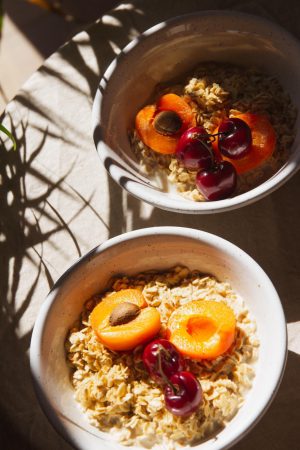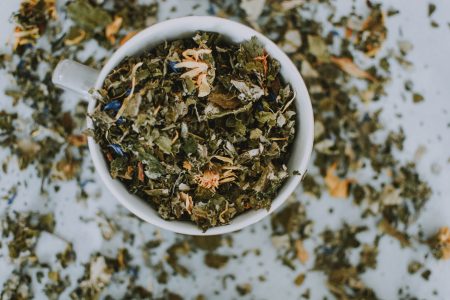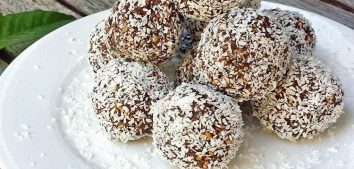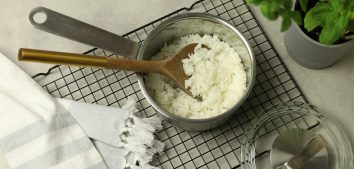
How to Deal with Constipation?
Constipation is a rather embarrassing problem for many of you and it contributes significantly to a lower quality of everyday life. However, it is one of the most common disorders in the functioning of the digestive tract. It is estimated that in Poland 13% of the population suffer from chronic constipation, i.e. every eighth Pole. Why does it happen and how to deal with it? You will find answers to these and other questions in this article ?
What Is Constipation and What Are Its Symptoms?
There are many definitions of constipation. Simply put, constipation is an abnormality in the functioning of the digestive tract that most often manifests itself in:
- fewer bowel movements (fewer than 3 times per week),
- difficulty when passing stools,
- hard stools,
- a sense that everything didn’t come out.
What Are the Causes of Constipation?
There are many factors that contribute to constipation. Their incidence increases with age, but it can also be a significant problem in children. We should also remember that constipation occurs 2–3 times more often in women, which is probably caused by anatomical and hormonal differences (increased serum progesterone concentration).
Bad eating habits play an important part in the development of constipation, including the consumption of highly processed food, low in dietary fiber, insufficient water supply, and irregular mealtimes. Other risk factors include low physical activity, taking certain medications, as well as stress and other psychological factors.
How Can You Deal With Constipation?
In order to relieve constipation-related ailments, it is essential to change your lifestyle and follow an appropriate diet.
A diet which relieves constipation should be characterized by an adequate supply of dietary fiber, about 25–30 grams per day. Fiber increases the weight of the stool and stimulates intestinal peristalsis, which has a beneficial effect on shortening the intestinal transit time and thus reduces the symptoms of defecation disorders. However, we must remember that increasing the amount of fiber should be done slowly and gradually to avoid flatulence and aggravation of symptoms.
Food products that are a good source of dietary fiber include:
- whole grain bread, e.g. rye bread
- thick groats and pasta,
- brown rice,
- oatmeal,
- bran, e.g. wheat,
- fruits and vegetables,
- nuts and seeds.

When we increase the supply of dietary fiber, it is also very important to provide the right amount of water. It has been known for a long time that water cleanses the body. It counteracts constipation by loosening stool, and thus facilitating bowel movements.
In order to normalize the rhythm of bowel movements, we should have 4-5 meals a day, if possible at fixed times and at regular intervals.
Additionally, the diet should be enriched with fermented milk products, such as natural yoghurts, kefirs and fermented vegetables (cucumbers, cabbage). These products support the work of the intestines, have a positive effect on the intestinal microbiota. Maintaining the balance of the intestinal microbiota is important not only for the prevention of constipation, but also for other diseases and conditions (including cancer, diabetes or hypercholesterolemia). You can read more about the properties of fermented products HERE.
Foods that may have a constipating effect should be excluded from the diet. These products include: white bread, white rice, semolina, flour dishes that include flour, such as noodles or dumplings, but also bananas, dried blueberries, cocoa, strong tea and red wine. In order to prevent additional ailments, it is also worth reducing or cutting out legumes such as peas, beans, chickpeas and cruciferous vegetables (e.g. cabbage, cauliflower, Brussels sprouts), which can cause flatulence.
Herbs for Constipation
Herbal infusions can be helpful in relieving the symptoms. You can use peppermint infusion to help combat the feeling of abdominal bloating and reduce pain. Chamomile infusions are also used to alleviate gastrointestinal complaints, as it has diastolic, anti-inflammatory and calming properties. A good choice will also be a fennel infusion which is widely used in the treatment of gastrointestinal ailments, as it stabilizes intestinal peristalsis. If problems with regular bowel movements are caused by psychological problems (excessive stress, emotions, work overload), it will be helpful to drink lemon balm infusions regularly to calm down.

Physical Activity and Constipation
The occurrence of constipation is strongly related to a lack of physical activity. In healthy people, the right dose of movement stimulates the motility of the large intestine, shortening the intestinal transit time, and thus increasing the frequency of bowel movements. Introducing moderate exercise, for about 30–60 minutes a day, significantly reduces the amount of gas and abdominal distension and improves the consistency of the stool. Walking is an underestimated form of physical activity (about which I wrote more HERE). Just about 30 minutes of walking a day is enough to improve the functioning of the intestines. So if you run out of time for training, try to incorporate walking into your daily routine.of gas and abdominal flatulence and improves the consistency of the stool.
Laxatives – Yes or No?
Treatment and prevention of constipation should primarily focus on changing eating habits and introducing more physical activity. if you don’t get the expected results, a laxative may be considered after a few weeks. However, we should be aware that some laxatives may have adverse effects (e.g. headaches, abdominal pain, diarrhea). Long-term use of laxatives without making changes to your diet and lifestyle is not a good solution. As a result of prolonged use of the preparations, the body gets used to their effects, so it may be necessary to take higher and higher doses of the drug, which becomes ineffective. Chronic constipation can be a sign of serious gastrointestinal disease, so if your symptoms persist and you’ve been taking laxatives over a long period of time, consult your doctor.
Let’s Sum It All Up
Constipation is a fairly common disease of the gastrointestinal tract, which can significantly reduce the quality of life, therefore it is very important to change eating habits and be physically active. A properly balanced diet, rich in dietary fiber, adequate fluid intake and regular exercise are one of the most effective methods of preventing and treating constipation.
Bibliography:
- Daniluk J. Przewlekłe zaparcia – niedoceniany problem kliniczny. Via Medica, Gastroenterologia Kliniczna. 2018; 2081–1020.
- Hermann J, Kościński T, Drews M. Praktyczne zasady postępowania w zaparciach u dorosłych. Ginekol Pol. 2012; 83, 849-853.
- Jabłońska B i wsp. Zaparcia – etiopatogeneza, diagnostyka i leczenie. Postępy Nauk Medycznych, t. XXIV, Suplement 1, 2011.
- Mulak A. Zaparcie oporne na leczenie — jak rozpoznać i leczyć? Via Medica, Gastroenterologia Kliniczna 2018, tom 10, nr 3: 81–92.
- Zielińska-Pisklak M, Szeleszczuk Ł. Rumianek lekarski – dlaczego warto mieć go w domowej apteczce. Farmakoterapia. VOL 23 NR 9’13 (269).










Comments No Comments
Join the discussion…